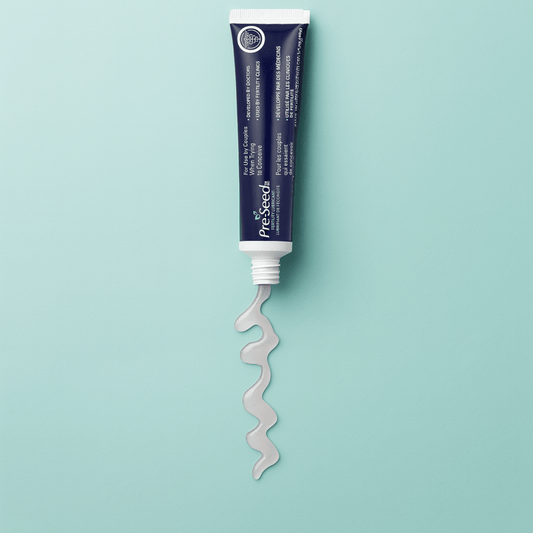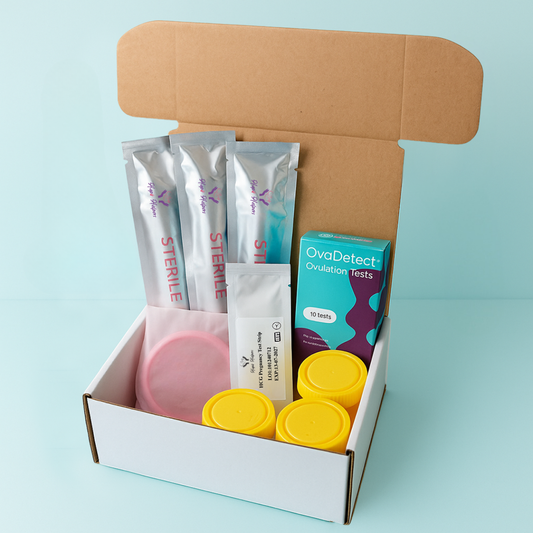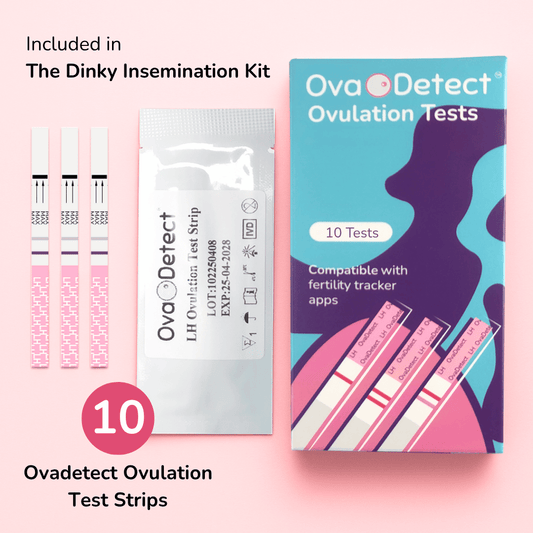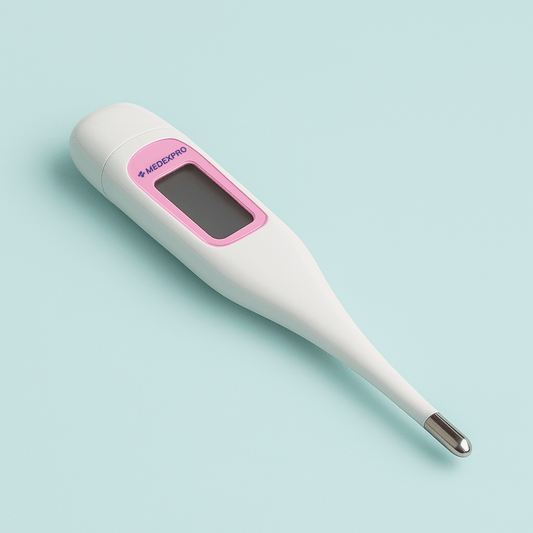8 Mistakes to Avoid When Trying to Conceive (And Other Common Pitfalls)
Trying to conceive can feel like a whirlwind of charts, advice, and emotions. While every journey is unique, certain mistakes can make the process more stressful or reduce your chances. Let’s walk through the most common mistakes and alternate ways to handle them.

Timing insemination or intercourse incorrectly
One of the biggest misconceptions is that conception can happen at any time during the cycle. In reality, a person’s fertile window is only about six days per cycle, with peak fertility occurring in the two days before ovulation. We’ve seen so many hopeful couples miscalculate this window: starting too late, stopping too soon, or relying only on basic cycle predictions.
What to do instead: Begin tracking ovulation several months before actively trying. Use ovulation predictor kits (OPKs), basal body temperature (BBT) charting, and cervical mucus observations to pinpoint your fertile days. If you’re doing home insemination, aim to inseminate about 12–24 hours after your LH surge. If you're timing intercourse, aim for every other day during the fertile window.
Relying too heavily on period or cycle apps
Apps can be helpful for keeping a log of your cycle, but many use algorithms based on averages rather than your unique body. If you’re someone with irregular cycles, PCOS, or post-pill hormone shifts, the app’s prediction might be totally off.
What to do instead: Use apps for tracking symptoms, not prediction. Combine app use with ovulation testing and physical signs like egg-white cervical mucus. Ovulation can shift from month to month, so trust your body - not just your app
Using the wrong lubricants
It’s easy to assume that all lubricants are TTC-safe, but many popular ones (like Durex, KY Jelly, and even some marketed as “natural”) contain ingredients that reduce sperm motility or make the vaginal environment less supportive for conception.
What to do instead: Stick to fertility-safe lubricants like Pre-Seed or BabyDance. These are designed to mimic natural cervical mucus and are pH balanced for sperm survival. For people who don’t produce enough cervical fluid, these lubricants can significantly help sperm mobility
Not addressing underlying health conditions
Conditions like PCOS, endometriosis, fibroids, thyroid imbalances, or undiagnosed male-factor infertility can all play a role in conception struggles. Many people go months, or even years, trying without realizing a medical factor is working against them.
What to do instead: Before starting your TTC journey, both partners should get a general check-up. Blood tests, sperm analysis, and pelvic ultrasounds can reveal valuable insights. If you’ve been trying for 12 months (or six months if over 35), it’s time to consult a fertility specialist. Early diagnosis = earlier solutions.
Overlooking sperm health
Conception isn’t just about the egg. Sperm health plays an equally critical role and unfortunately, many don’t realise how easily sperm quality can be affected by lifestyle. Heat exposure (like hot tubs or frequent laptop use), poor diet, smoking, alcohol, and certain medications can all reduce sperm count or motility.
What to do instead: The partner providing sperm should adopt a fertility-friendly lifestyle: balanced diet, hydration, daily movement, no smoking, limited alcohol, and wearing looser underwear. Supplements like zinc, selenium, CoQ10, and L-carnitine may also improve sperm parameters. If you’re unsure, a semen analysis is a good place to start. Sperm Rapid Self Test is an easy-to-use home test that gives a fast and valid answer on male fertility.
Stressing too much about conception
Easier said than done, right? But chronic stress can have real hormonal impacts, especially on ovulation and implantation. Beyond the physical, emotional stress also strains relationships and can lead to burnout during what’s already a vulnerable journey.
What to do instead: Build intentional rest into your routine. Try yoga, light cardio, breathwork, or acupuncture. Some couples benefit from therapy, either individually or together. Remember: this is a marathon, not a sprint. If needed, take a cycle off to reset your mental space.
Ignoring the role of nutrition and lifestyle
You don’t need a perfect diet to get pregnant, but a consistently poor one can make things harder. Too much sugar, caffeine, or processed food can disrupt hormone regulation, insulin response, and even egg or sperm quality. Likewise, a sedentary lifestyle can affect weight, metabolism, and hormonal balance.
What to do instead: For both men and women, focus on balance - not perfection. Eat a nutrient-rich diet filled with leafy greens, lean protein, full-fat dairy, healthy fats (like avocado and nuts), and plenty of hydration. Reduce caffeine to under 200mg per day. Try 30 minutes of gentle movement daily, even walking counts. A consistent, nourishing lifestyle supports hormone health, egg quality, and sperm parameters, making it a key part of the TTC foundation for all genders.
Also, consider adding nutritional supplements tailored to support fertility in both partners:
For women trying to conceive: A complete prenatal supplement containing folate and iodine is essential. Folate (the natural form of vitamin B9) helps prevent neural tube defects and supports early fetal development - especially important during the first few weeks of pregnancy, often before you know you're pregnant. Iodine plays a vital role in supporting thyroid health, which directly influences hormone balance and the development of a baby’s brain and nervous system.
For men trying to conceive: A fertility-support supplement that includes zinc, selenium, CoQ10, and vitamin C may help improve sperm count, motility, and DNA integrity. These nutrients support healthy testosterone levels, protect sperm from oxidative damage, and enhance overall reproductive function.
Adding the right supplements early on, ideally 3 to 6 months before trying to conceive can lay the foundation for a healthy pregnancy and improve your chances of success.
Not seeking help soon enough
It’s very common for couples to feel embarrassed or hesitant to ask for help, or to think they’re “just being impatient.” Unfortunately, delaying medical insight can also delay progress.
What to do instead: If you’re under 35 and have been trying for a year, seek support. Over 35? Make that six months. Irregular cycles, past losses, known reproductive issues, or no period at all? Don’t wait. A fertility consult doesn’t commit you to anything. It just opens doors.
Other mistakes to be aware of
Assuming age doesn’t matter: Fertility naturally declines after age 35, and egg quality drops faster than most people realise. Age isn’t everything, but it is a factor.
Over-testing and symptom obsessing: Taking too many pregnancy tests or googling every symptom during the two-week wait can send you into a spiral. One or two tests at the right time is plenty.
Waiting too long to explore other options: If you’ve tried multiple cycles with no luck, it’s okay to start exploring AI, IUI, IVF, or donor options. That’s not giving up. It’s expanding your possibilities.
Trying to conceive can be a beautiful, challenging, and transformative journey. While there’s no guaranteed path to success, avoiding these common missteps can increase your chances and ease the emotional load. Be proactive, stay informed, and most importantly, be gentle with yourselves.
And if you're looking for products, tools, or community to support your path to parenthood, we're here for you every step of the way ♡

If you need help going through any block, talking with a TTC consultant can help! Book a FREE 15-minute virtual consult today!
Book a TTC consultation










